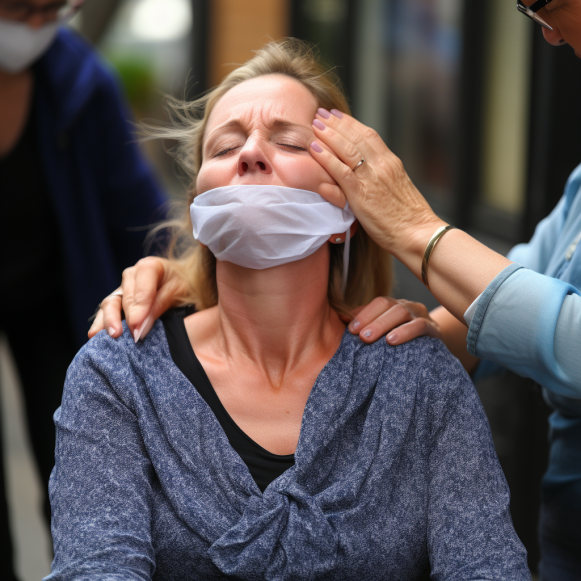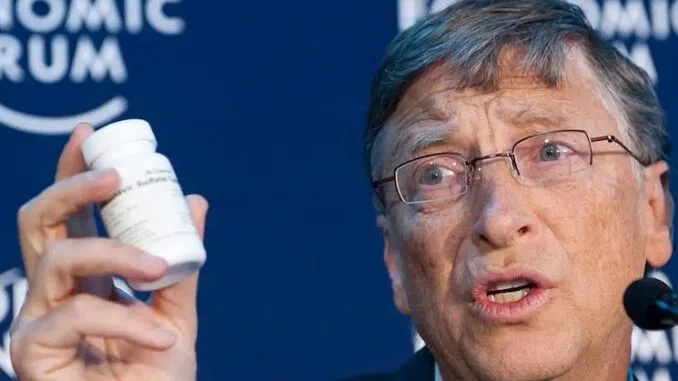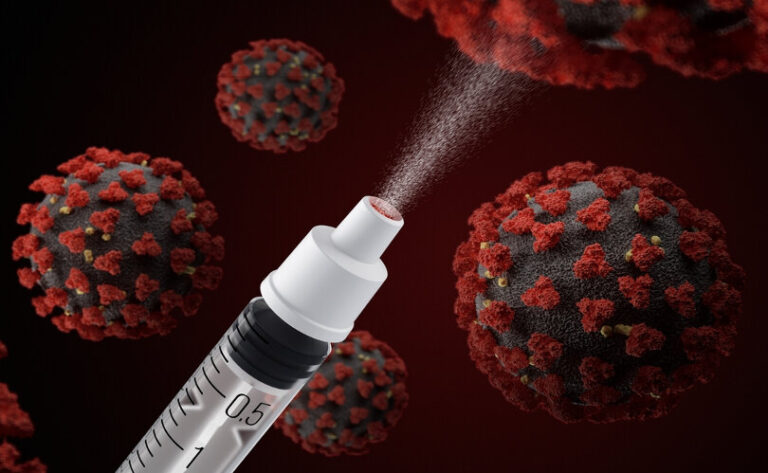Actress Sues AstraZeneca After COVID-19 Jab Leaves Her With Brain Injuries

Melle Stewart was a hugely successful actress. Now she has a piece of titanium the size of her hand lodged in her skull.
An Australian theatre star and vaccination advocate is suing pharmaceutical company AstraZeneca, claiming that the company’s vaccine caused a life-threatening stroke that rendered her unable to work.
Melle Stewart, 42, is well-known in the UK and Australia for her roles in the musical Mamma Mia! and Channel 7’s Home and Away.
On May 24, 2021, Ms. Stewart received her first dose of the AstraZeneca COVID-19 vaccine.
She began having seizures two weeks later, lost her ability to speak, and lost all movement on her right side of her body.
Vaccine-Induced Thrombocytopenic Thrombosis (VITT) was diagnosed in her, a blood-clotting condition that the manufacturer and regulators now recognize as a “very rare side effect” of this particular vaccine.
She underwent numerous procedures and intensive therapy, including a craniectomy, a three-hour operation to remove a portion of her skull in order to reduce pressure in her brain and keep her alive.
Since then, surgeons have replaced that portion of her skull with a titanium plate the size of her hand.
‘Linked to the Vaccine’
From the start, doctors “were running the hypothesis that this was linked to the vaccine,” according to Ms. Stewart’s husband, Ben Lewis.
“It was a fairly recent diagnosis.” Melle, on the other hand, had no medical history. She was in great shape. She treated her body as if it were a temple. That was her job, after all. “She’d never been to the hospital before,” he explained.
Despite this, blood tests performed by a haematologist revealed specific markers that confirmed the vaccine as the source of the problem.
Ms. Stewart had low blood platelet levels and clotting problems, requiring five blood transfusions in four days.
The couple had never heard of COVID-19, but because the theatre industry had been closed down during the pandemic, they believed that mass vaccination would be a critical step in bringing back audiences.
“It’s extremely frustrating.” Words are my life, and they are no longer with me. “I say the words, but getting them out is a problem,” Ms. Stewart said of the slim chance of appearing on stage.
“I’m upset about it. It’s difficult.”
While she received £120,000 (A$230,000) from the government as compensation for the vaccine’s harm, it was insufficient to compensate her and her husband, who had to take time off work to care for his wife.
Ms. Stewart has agreed to a second vaccination and wants everyone to know that she is still a proponent of vaccination.
“Despite the issues I’ve had due to the Astra Zeneca vaccine, I have gone on to receive multiple doses of the Pfizer vaccine and I remain a staunch advocate for vaccination,” she said.
However, the couple feels compelled to sue AstraZeneca because they believe they were misled by the government’s assurances.
“We had an expectation this vaccine was safe to use but AstraZeneca was not safe to use in this case,” Mr. Lewis went on to say.
“And while there are only a relatively small number of people injured or worse, it is incumbent on the government to take care of the very few people who have done the right thing for the country and society.”
Vaccine Damage Payment
The government’s tax-free payment to Ms. Stewart is part of a compensation scheme established in 1979 to maintain public trust in all vaccinations.
Critics believe that this is woefully inadequate for people who have suffered life-changing injuries as a result of receiving a COVID-19 vaccination, as well as the consequences for their loved ones.
Since 2007, the current payout amount has not been increased.
The scheme requires victims to demonstrate that they are 60% disabled as a result of the vaccine. Those who do not meet this threshold do not receive financial assistance, and there is no sliding scale for those who have suffered less damage.
In response to Ms. Stewart’s landmark legal case, an AstraZeneca spokesperson told The Epoch Times, “patient safety is our highest priority, and regulatory authorities have clear and stringent standards to ensure the safe use of all medicines, including vaccines.”
“Our sympathy goes out to anyone who has lost loved ones or reported health problems,” he went on to say.
According to the spokesperson, the government’s Medicines and Healthcare Products Regulatory Authority (MHRA) granted full marketing approval for Vaxzevria in the UK based on the vaccine’s “safety profile and efficacy.”





